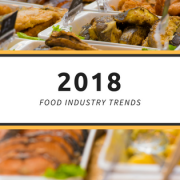One of the keys to successful food preparation is knowing how to store and maintain your ingredients. While oils and shortenings may not seem like they need to be carefully stored in order to remain fresh, taking certain steps to properly preserve them can actually be quite valuable. By understanding factors to consider when storing oils and shortenings, as well as the best ways to preserve them long-term, you’ll be set up for success when cooking.
Considerations for Proper Oil & Shortening Storage
The first thing to understand when storing oils and shortenings is the shelf life of both. Cooking oils typically last for about a year when kept stable, and shortenings are good for two years when unopened and approximately three months once they are opened. Depending on the type of oil or shortening – variations range from canola and corn oil to all-purpose and donut frying shortening – these time frames can vary, however.
Unsurprisingly, shelf life also depends heavily on how the products are kept. The quality of stored oils and shortenings can diminish over time when the ingredients’ packaging is not sealed properly or is exposed to too much light. It’s also important to consider contamination risks when storing oils and shortenings. Making a conscious effort to keep the ingredients away from heavily odored items that could potentially spoil your product is wise.
The Best Ways to Store Oils & Shortenings
To ensure your oils and shortenings are stable for as long as possible, there are a few best practices you should follow when storing them. We recommend keeping the products in their original packaging and limiting significant oxygen exposure to the containers. Proper ventilation is important to avoid the build-up of moisture, however, so the ingredients should have some access to fresh air. Finally, try to keep oils and shortenings away from direct sunlight by storing them in a cool, dry place, such as the interior of a pantry or cabinet.
Preserving Oils & Shortenings for Future Use
If you’re interested in preserving oils and shortenings past their expiration date, freezing or refrigerating them is a possibility. For oils in particular, doing this will keep the product fresh for longer; just make an effort to let the oils thaw to a room temperature before using them to ensure their quality. It is recommended that shortening not be kept in the refrigerator, but freezing the product for up to one year is an acceptable way to extend shelf life.
While taking these steps will keep oils and shortenings stable for a longer period of time, it’s still important to change out your oils and shortenings semi-regularly and not keep them too long. Once oils and shortening have eventually gone bad, there are a few signs to look out for. Expired cooking oil typically has a bad smell and tastes sweet or fermented. While it likely won’t make you sick, consuming bad oil still isn’t fun. As for shortenings, this ingredient will harden, darken in color, and smell off once it’s out of date.
There isn’t one correct way to preserve your oils and shortenings, but learning the steps you can take to better do so and paying attention to how you’re storing your ingredients is important. For additional insights on storing oils and shortenings, contact us – we’d be happy to help determine the best preservation method for your situation.

